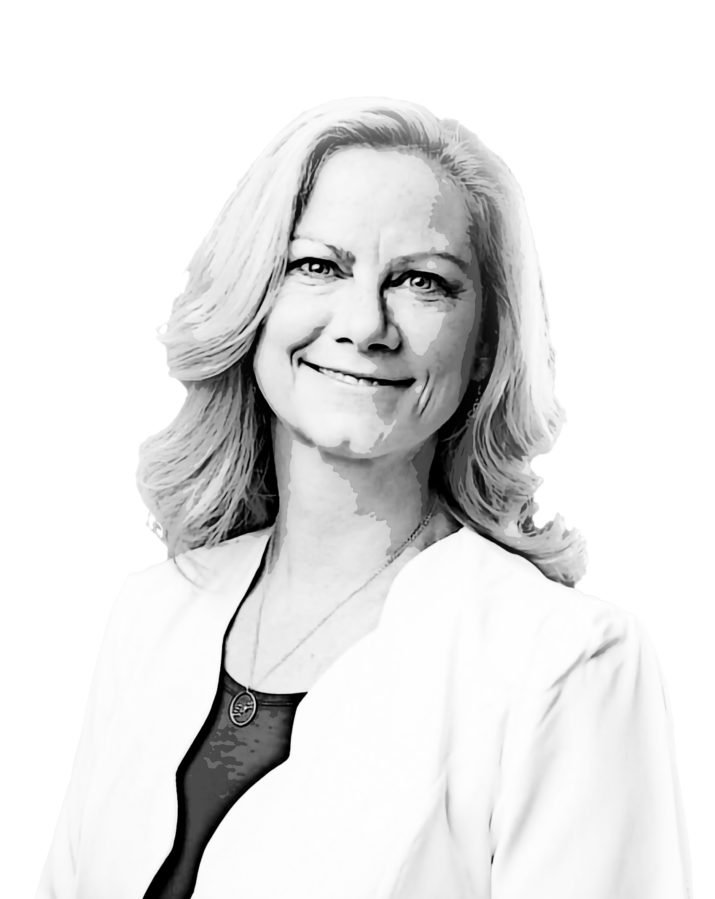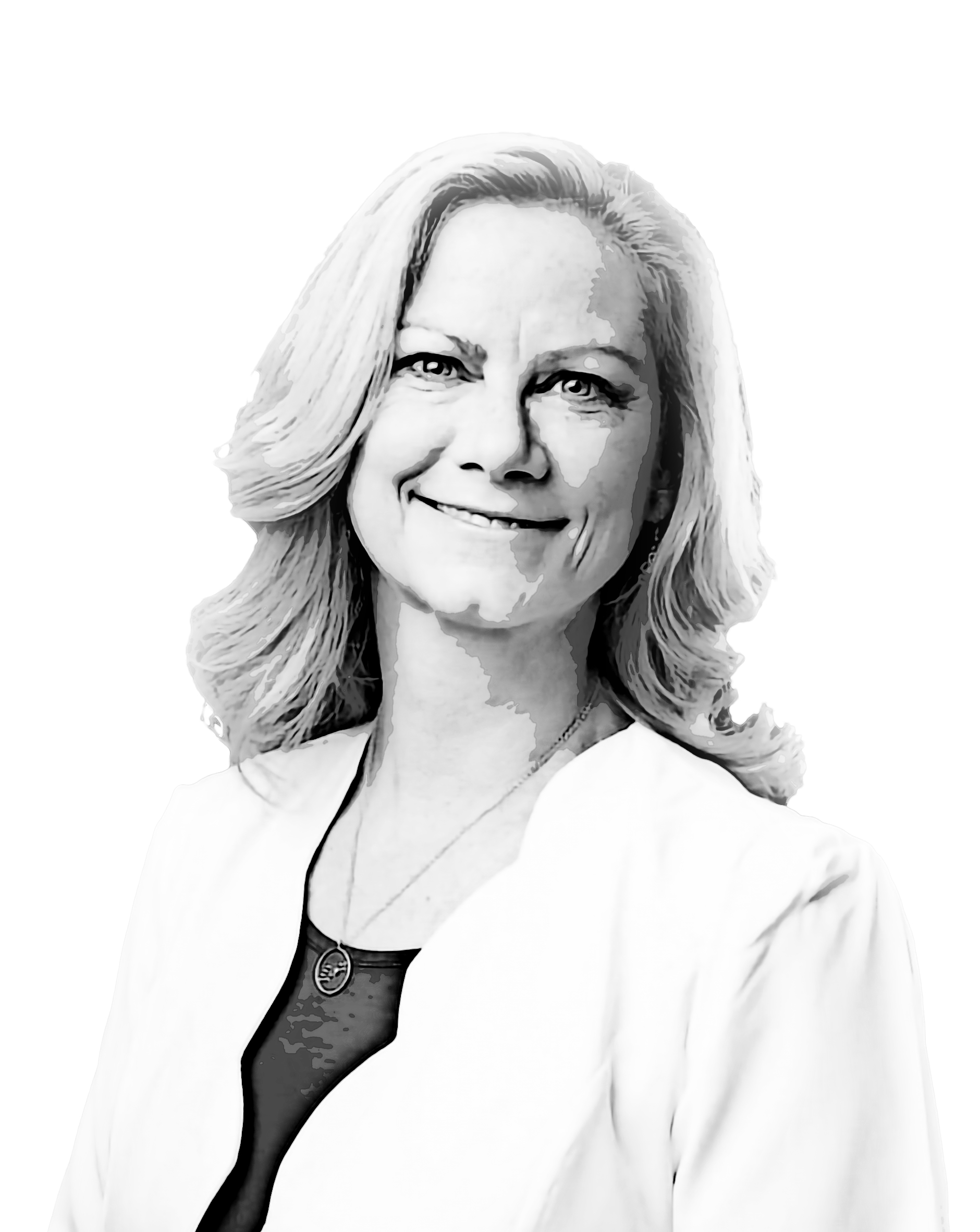

This is part of our Campus Spotlight on Appalachian State University.
This is part of our special feature, Me Who? The Audibility of a Social Movement.
French philosopher Simone de Beauvoir stands an intellectual pioneer through the ways in which she positioned women’s bodies at the center of her analysis of feminine lived experiences. In 1949, her seminal Le Deuxième Sexe (The Second Sex, in English) broke away with the then dominant naturalist understanding of women’s bodies when she asserted that society is the key determinant of women’s roles and status through the restrictions it imposes on their bodies. Since then, much research has emerged―from a generous array of fields―that explores the social production and understanding of the woman’s body, including how women themselves envisage its meaning and representation, sometimes in paradoxical terms. As a clinician who holds a long experience engaging directly with patients and students over questions of body image and insecurities due to physical appearance, Denise Martz contributes to further tracing the path in this discussion.
In this interview, she addresses some of the work she has presented in her latest book Fat Talk: A Feminist Perspective (McFarland, 2019). Based on her practitioner’s expertise, she explains how, in a society that puts much emphasis on looks, “fat talk,” “body snarking,” or “upward social comparison” have become common practices among girls and women, leading them to forfeit not only their self-esteem, but also their place and authority in society. At the same time as I was reflecting on this interview, I also ran into two New York Times (NYT) articles that gave me pause. The first was on social media celebrity Kim Kardashian’s new twenty-first century body corset line (a.k.a “compressive” and “smoothing” shapewear), and the second on the Super Bowl intermission spectacle, from which the take away seems to have been less about the music than the bodies of the two women performers. What’s often most interesting about these types of articles are the NYT readers’ comments and responses to each other. Here, the way they battle out some significant underlying biases about women’s bodies and gender roles, and discuss whether it might be acceptable to turn women’s bodies into entertainment and not blink about it, is basically still asking the same chronic question about the position of women in the world and the model of the ideal woman being circulated. Are we going backward in the way women find their place in society in the twenty first century, disciplining their bodies into couture contraptions and exhibiting them as recreation? Or, au contraire, is that women’s lib at its fullest realization point, reminiscent of the Greek Antiquity’s Maenades who could experience complete liberation through Dionysiac trances? From her behavioral psychology perspective, Denise Martz, gives us important tools to engage this debate.
―Hélène B. Ducros for EuropeNow
EuropeNow What is “fat talk” and what constitutes “body snarking”?
Denise Martz Fat talk is defined as a communication exchange with the focus on individuals’ physical appearance especially their critical dialogue pertaining to body fat, weight, shape, style, or fitness. Body snarking―also called fat shaming―is when people say, print, or post public critique of women’s appearance on social media, often anonymously. Although researchers have only been studying these topics for twenty-five years, evolutionary biology/psychology suggests that humans are hard wired to attend to others’ physical appearance. Place those genetic predispositions into modern culture with an emphasis on beauty, and this explains the motivations for engagement in fat talking and body snarking.
EuropeNow What are some consequences of this practice at different scales? (personal, societal…)
Denise Martz On the surface, fat talk discourse may seem innocent and harmless. Yet closer feminist analysis suggests that fat talk compromises individuals’ self-esteem. I conceptualize fat talking a bit like addiction, where individuals engage in substance consumption to feel better in the short-run. However, this dependency causes many more problems for them in the long-term. It appears to bring some girls/women short-term relief to vent their appearance insecurities to other women and receive reassurance, but the scientific literature suggests this behavior is associated with poor body image, lower self-esteem, and eating disorders when done habitually. Speaking poorly about oneself to others reinforces those critical attitudes about the individual’s identity. How will a woman personally rise and achieve equality in a culture that fosters her own fat talk? Snarking of women about their appearance, and whether or not they adhere to our culture’s gender role expectations, strips many targeted victims from their perceived influence, effectiveness, and power. Snarking is a symptom of a larger form of sexism and misogyny in U.S. culture. How are women, collectively, to rise and achieve social and political equality in a society that supports this nasty form of bullying towards women? From a feminist perspective, the men and women who cut other women down through body snarking are also women’s worst enemies.
EuropeNow What does a feminist perspective specifically bring to the discussion of “fat talk”?
Denise Martz Feminist theory extends feminist politics into scholarship and aims to help scientists understand and remedy gender equality in our society. Feminists should be very concerned about fat talk, as this toxic dialogue is a way that women have become their own private enemies. Considering extensive literature examining the harmful associations of fat talk (e.g., poor body image, lower self-esteem, eating disorders) compared to the literature showing minor positive functions of fat talk (Mimi Nichter’s teen research that fat talk serves as bonding behavior, 1994, 2000), we can conclude with science at this point that fat talking is clearly harmful.
EuropeNow What role do you think factors like age, class, economic status, race, geography/location, education play in fat talk, body snarking, or more generally in constructing the body?
Denise Martz In my work, I examine what we know about who does and who does not fat talk. This is more of a white girl/women habit compared to what we know about African American women who aspire to more individualistic and flexible beauty ideals. We also have some research to suggest that white women do this more than Hispanic women. Girls and women tend to engage in fat talk. Older men also tend to do this some, but younger men rather tend to engage in muscle talk about their bodies. We also know that gay men engage in fat talk and muscle talk more than straight men. We have seen some slight age predictors of fat talk with teen and young women reporting this more than older women. We are not sure if this is an age effect or a generational effect. Geographic region has not been studied.
EuropeNow What do you think is the role or responsibility of the media and the fashion industry in propagating a skewed image of an “ideal” and often unrealistic woman’s body? Do you think it also plays out in the propensity for girls and women to engage in fat talk?
Denise Martz We know that girls/women who engage in what is called frequent “upward social comparison,” meaning comparing their bodies and appearance to celebrities, actors, and fashion models have worse body image and more eating disordered behavior, relative to those who do not engage in these type of comparisons. Our fashion industry usually features models in sizes 0-4 when our national average is more of a dress size around 12-14. Statistically, our fashion models are genetic anomalies and there was one study done that showed fashion models often have a strong “drive for thinness,” which is one symptom of eating disorders. In 2017, France passed a law banning ultra-thin fashion models in their media. We could use more role models featuring normal body sizes in our media. We could also do more to educate young people in media critique to help immunize them from the harmful effects of these upward social comparisons. Jean Kilbourne’s film called Killing Us Softly is a feminist analysis of modern advertising. I highly recommend it.
EuropeNow How does your training as a psychologist help you in presenting and discussing this topic with students?
Denise Martz In my book I present this work both as a scientist compiling all of the known research on fat talk and body snarking/fat shaming, as well as a clinician who has worked in helping clients improve body image, self-esteem, and in treating eating disorders. I feel like I’ve been immersed in both the science and clinician aspect all of my career, so this is easy to present when teaching students.
EuropeNow What other disciplines do you draw from in your research on body image and what do they each bring to understand the phenomenon?
Denise Martz Although both fat talk and body snarking―as behaviors―are explained most specifically by social psychology, understanding their origins begs for an evolutionary psychology/biology analyses as to why we as humans pay attention to appearance, why we appreciate “beauty” even from infancy, and why beauty preferences focus on health and signals for fertility in women. Within heterosexual men’s assessment of women’s fertility, they pay particular attention to women’s waist to hip ratio (i.e., ideal is 0.7) as a means of surmising that she is likely young and fertile and could be a good relationship investment for healthy reproduction.
However, regardless of our evolutionary wiring, fat talk and body snarking are best contextualized in human culture across our ancestry. As an example, women have always been encouraged to look like “not men” with beauty fads across history encouraging women to accentuate their womanliness (e.g., breast & buttock augmentation now, corsets in the 1800, lots of hair on the head, minimal hair on the face). Moreover, both fat talking and body snarking are clearly embedded within modern culture holding prejudice against fatness. The extent of this form of bullying against women is pernicious. We have documented snarking targeting celebrities and how snarking blurs the voting judgment for female political candidates. Both body snarking and American’s tendency to use gender stereotypes were active in Americans’ voting decision in the 2016 presidential election.
Further into the interdisciplinary examination of these communication tendencies, my research borrows from the healthcare field and the social psychology to examine why lay people and many healthcare providers tend to think fat bodies are always unhealthy. This is not what the science says. Lack of fitness is the culprit to poor health regardless of one’s body size.
To understand why fat talk and body snarking are maintained in our culture, my research delves deeper into the field of social psychology in using the third person effect and pluralistic ignorance to explain how this accentuates evolutionary forces. To look at the effects of this on the individual level, I use the fields of clinical psychology and feminist theory to explore the link between these and the development of poor self-esteem, poor body image, depression, and eating disorders in girls/women. In an attempt to help us as individuals and as a culture change these horrible habits of fat talk and body snarking, I also borrow from the fields of media studies and community psychology embracing their knowledge of culture change. Overall, my work is interdisciplinary scholarship borrowing heavily from many scholarly fields.
EuropeNow What are some societal questions that you feel are particularly salient today around this topic?
Denise Martz From a feminist perspective, fat talk is a way that women are―often unknowingly―bringing themselves down, since this habit is associated with adverse outcomes. Body snarking is particularly sexist and uncalled for in our society. I’m interested in taking a look at why these exist, but also work on formulating a feminist agenda for change for women at the personal level and at the societal level. If we are not aware of these, then how on earth will they change?
EuropeNow Thank you for sharing your course syllabus with us. Can you tell us about your students? Why do you think they take your course on “fat talk”? What do they expect to learn and to gain?
Denise Martz I have taught this course as a selected topics course and now as a psychology major’s honors course. Most often, these students come from a feminist social activism stance and many of them have suffered personally from women’s mental health issues of depression, body image problems, and eating disorders. They are looking to understand themselves and their society more formally. They also tend to have an appreciation for science and how this fits with political issues.
EuropeNow I imagine that the environment could get rather personal for students in your classroom. How do you keep it inclusive and supportive?
Denise Martz Yes, these tend to be very intimate classes with lots of student disclosure. It’s easier for me to be inclusive when I think about students of diverse races, sexual orientation, and gender identity. My growth edge that I am working on is to consider and bring up intersectionality more as we discuss these issues. I am also cautious that not all of these students lean towards feminist ideology and democratic politics. We have to be open to different student views in order to foster healthy discussion and debate about these topics, especially at a time in history where media is no longer modeling that for us.
EuropeNow Can you comment on ways the #MeToo movement may intersect with or impact your work about the body?
Denise Martz On a clinical level, we know that girls/women with a history of sexual abuse tend to have more psychological distress, often times resulting in eating disorders and/or sexual dysfunction, among other disorders. Fat talk and body snarking are feminist issues as well as how people in our society mistreat women. Although not all #MeToo individuals are women, most of them seem to be.
EuropeNow What do you think can be done to end the practice of fat talk? Can you think of something that has already been done or someone who has done something useful in this area?
Denise Martz Yes, the last two chapters of my book focus on personal change and societal change. The personal change relies on modern day therapies like cognitive behavioral therapy (CBT) and acceptance and commitment therapy (ACT) and explains how these improve body image and treat eating disorders. CBT rightly assumes that eating disorders are dysfunctional coping behaviors for significant distress, and perhaps trauma. In such, we acknowledge the tri-directional links between human cognition (thought), emotions, and behavior. CBT targets unhealthy thinking (e.g., “if I eat this pizza, I will get fat”), in order to replace dysfunctional coping behavior and negative emotions with healthy behavior and more positive emotions. ACT, as a therapy, behaves similarly to CBT, but with more emphasis on living a healthy, values-driven life, as opposed to necessarily treating specific pathology (e.g., “I need my mind and body to be very healthy to do all of the wonderful things that I wish to do in life”). ACT also alternatively focuses on thought defusion as an intervention (e.g., “I’m going to let that thought about pizza calories float away and move on by. This pizza is going to taste so good”). Most clinical psychologists who rely on scientific evidence for treating poor body image and eating disorders follow CBT and ACT.
At the community level, we know that Girls on the Run is helping for teens and The Body Project has been successful at helping college age women improve their self-esteem and prevent eating disorders scientifically. I also give compliments to actors like Emma Watson and Melissa McCarthy for pushing back on reporters’ or trolls’ attempts to snark them. Although Lizzo was not on my radar when I finished the book, she is another great role model for body positivity.
Denise Martz is a clinical health psychologist in the Kulynych/Cline Distinguished Professorship at Appalachian State University. As a professor, she enjoys teaching women’s health, behavioral medicine, health, abnormal, and clinical psychology courses. Denise has been publishing her scientific work on fat talk with colleagues and students for the past thirteen years. In addition to her academic career, she runs a small private practice in her community. Denise has two wonderful grown sons and lives with her partner and assorted fur babies in Valle Crucis, North Carolina.
Hélène B. Ducros (JD and PhD from the University of North Carolina-Chapel Hill) is the Chair of Research and Pedagogy at EuropeNow where she oversees the Research and Campus Editorial Committees. She is a human geographer with a wide interdisciplinary range of research experiences in the nature-culture nexus, landscape evolution and perception, place-making, territorial development, tourism, and material culture. She is also interested in issues of teaching and learning and comparative eduscapes. She co-chairs the Council for European Studies Critical European Studies Research Network. @CESCritEuro
References
Martz, D. (2019). Fat Talk: A Feminist Perspective. Jefferson, NC: McFarland & Company Publishers.
Nichter, M. (2000). Fat talk: What girls and their parents say about dieting. Cambridge, MA: Harvard University Press.
Nichter, M., & Vuckovic, N. (1994). Fat talk. In N. Sault (Ed.), Many mirrors: Body image and social relations (pp. 109-131). New Brunswick, NJ: Rutgers University Press.
Published on March 10, 2020.




